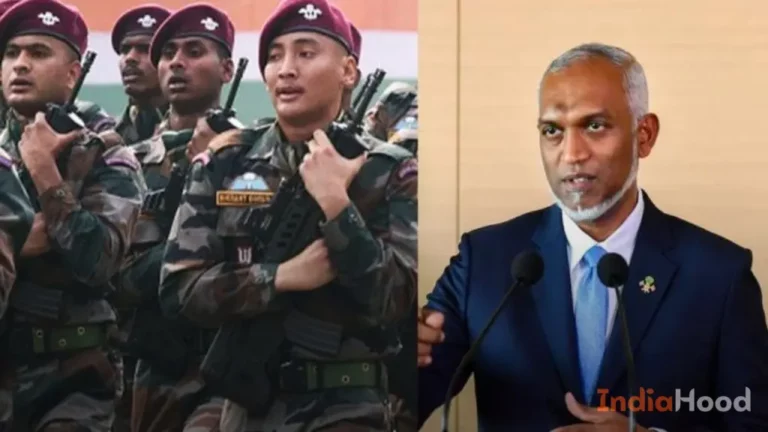NIN365 Desk, Kolkata : President Mohamed Muizzu of the Maldives, akin to a cinematic twist, seems to unveil his true colors upon returning from China. The intrigue deepens as he issues a stern call for the withdrawal of Indian troops by March 15th, creating ripples on the international stage. The Maldives, though small, asserts its maritime dominance, housing a vast Exclusive Economic Zone spanning 900,000 square kilometers.
In an unexpected turn, Muizzu’s demeanor underwent a transformation after his talks with Xi Jinping, steering a more assertive course. The Maldivian government, in no uncertain terms, declared that Indian troops must exit the nation by mid-March, signaling a departure from Muizzu’s earlier assurances. Abdullah Nazim Ibrahim, the Secretary of Public Policy at the President’s office, affirms that this is a directive from President Muizzu himself and aligns with the current administration’s policy.
This move is not unprecedented, as Muizzu had hinted at the possibility of Indian troop withdrawal almost two months ago. The issue has gained heightened importance, with Muizzu now imposing a timeline. The Maldives currently hosts 88 Indian military personnel, whose continued presence appears to be under question.
Notably, this isn’t the first time Muizzu has broached the topic of Indian troop withdrawal. A high-level core group has been formed for discussions between the Maldives and Indian military regarding this matter. The first meeting of this group took place on Sunday in Male, with India’s High Commissioner Munu Mahawar in attendance. Nazim clarified that the meeting focused on the issues outlined in the agenda shared beforehand, reaffirming the March 15th deadline for the Indian military’s departure.
In a peculiar twist, Muizzu’s statements cast shadows on the cordial relations between the Maldives and India, and the strategic cooperation that has historically existed. This development follows Muizzu’s recent five-day visit to China, culminating in a sharp critique of India upon his return. He asserted, “The Maldives may be small, but it does not grant a license for anyone to threaten us. In this vast ocean, the Maldives stands as the largest holder of exclusive economic zones among these smaller island nations.”
While Muizzu’s comments create diplomatic ripples, the strategic implications of such a shift raise questions. The intricate dance between the Maldives and India, previously characterized by defense collaboration and mutual assistance, now faces uncertainty. The geopolitical landscape in the Indian Ocean is evolving, and President Muizzu’s maneuvers are adding a layer of complexity to this dynamic chessboard.
As the countdown to March 15th ticks away, the diplomatic community watches closely, wondering if this strategic repositioning is a fleeting development or the herald of a more profound geopolitical shift in the Indian Ocean region.
DISCLAIMER
Our news media denounces any form of bias and disapproves of sensationalism. The disseminated news is entirely educational and aimed at social awareness. Our media maintains absolute impartiality, adhering solely to the purpose of education and social consciousness.


